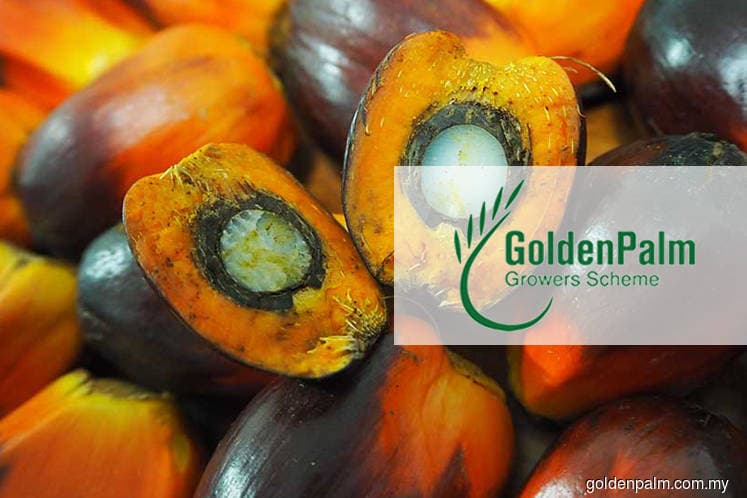
This article first appeared in The Edge Financial Daily on September 27, 2019
KUALA LUMPUR: The High Court will hand down its decision on an investment scheme dispute between Golden Palm Growers Bhd (GPG) and its investor growers on Nov 11, following the conclusion of the hearing yesterday.
GPG had sought a court order to wind up the scheme prompting the scheme investors to launch a counterclaim for some RM36.5 million in monies due and owing, plus guaranteed yields.
Lawyers from both sides had argued over the purpose of a valuation exercise undertaken on the plantation concession owned by GPG. The valuer, Raine & Horne International, had valued the assets at RM220 million.
Jerry Ling, representing himself and the growers, told the court the purpose of the valuation was to give the impression that GPG would be able to sell the assets in order to recoup an amount, which would then be paid to the growers.
This was ostensibly done to persuade investors at a general meeting in October 2017 to vote in favour of giving the company a year to find a suitable buyer for its plantation in Kelantan.
However, the company failed to find a suitable buyer, leading to the cessation of the scheme. No payment was made to the growers.
“This was done to impress on the investors that the management company has the right to sell the land and the assets on the land. However, they do not own the land and only have the concession. How would they sell something they do not own?” Ling pointed out.
GPG counsel Gopal Sreenevasan said the RM220 million refers to the value of the concession only and does not include the value of the land.
“If that is so, then how would you explain your client not being able to get even 50% of the value?” asked High Court Judge Ong Chee Kwan, to the laughter of the growers who filled up all the seats in the courtroom.
“The reality is palm oil prices have dropped significantly. No one wants to buy. Our client has met with many companies and there were no buyers,” said Gopal.
Another point debated was a term in the investment agreement signed by the growers, which stated that GPG shall buy back any interest from the interest holder.
Ling said that no timeline was given for this term, and therefore it would be up to the investor as and when the investor would like to pull their money out of the scheme.
However, GPG had imposed a 10% limit to the amount of funds that could be withdrawn, which the lawyer said was in breach of the buyback term in the agreement.
Justice Ong queried if the word “shall” can mean “as and when the investor asks to withdraw”.
“That is one way to read it. But the agreement does not say it ‘shall act upon the request’,” Gopal replied.
“So, it does not provide any qualification. Would that not allow the scheme owner to avoid the obligation that is devised to protect investors?” asked the judge.
Gopal said that the commercial reality of an investment such as this has to be weighed, as if a group of growers had pulled out of the scheme, it would jeopardise the remainder of investors that may want to continue, which was why a limit was imposed.
“Well, if the scheme was good, the investors would not pull out,” observed the judge.
In its suit, GPG had also asked the court to appoint Jayapulasingam as liquidator of the scheme on the grounds that the scheme can no longer be operated or managed, given the decision by the growers to close the scheme at a general meeting in April.
However, Ling said the investors would like to appoint two other liquidators, as the investors have lost trust in the company managing the investment scheme.
The judge expressed concern over the appointment of two liquidators as it is uncertain whether they would be able to work together.
He said he would require some time to decide on the matter and fixed Nov 11 to hand down his decision.